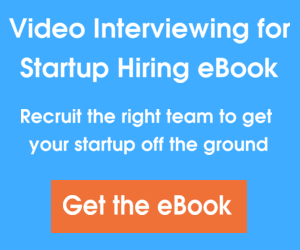When it comes to your startup, what is more important: providing the perfect product the first time around or getting a product to your consumer base as quickly as possible? Believe it or not, your answer to that question can also help you with your startup hiring strategy.
Last year, at a recruiting conference, Aki Taha, founder of a hiring-strategy firm called Persona, told George Anders, a Forbes contributor, that just like the product, startups should be looking for candidates who might not look perfect on paper. He went on to explain that many companies make the mistake of creating a long list of characteristics and qualities that they’re looking for in new employees.
What they should be doing, he told Forbes, is creating a set of “must-have” and another set of “nice-to-have” qualities. Creating a blanket list of traits that company is looking for forces hiring recruiters to meet as many checks on that list as possible. In doing so, they might miss key “must-have” requirements, opting instead to hire someone because they meet a lot of “nice-to-have” traits.
Taha went on to suggest that the hiring team needs to build an on-target job description that includes a lot of their must-have requirements. With a specific job description, startup hiring recruiters are receiving more targeted applicants and resumes. But, he stresses, it’s up to startups to create their own must-haves list. They know what they need best, and with that, they need to ask for just that.
Anders, in researching his book The Rare Find, found Taha’s philosophy to ring true at many other companies. Rather than getting caught up in hiring candidates from top-tier college institutions with high GPAs, they were looking for candidates who had the character traits they desired. He states, “Assets such as resilience, quick learning, ingenuity and an eagerness to work on the frontier counted for more than grade-point averages or years of experience.”
As a startup, your hiring process shouldn’t be about who you’re bringing onto the team but about what they’re bringing. A college dropout may be better than a Harvard grad. A risk-taker with a few failures might bring more to the table than a candidate who has only seen success after success.
Your workplace may look like a band of misfits, but that may be just what your product needs. Essentially, scrap what looks good on paper, and opt for what feels right for your product when it comes to hiring for your startup.
What do you think of this not-so-perfect candidate philosophy? Do your job descriptions separate “nice-to-have” qualities from those that are a “must-have”? Leave us a response below.











